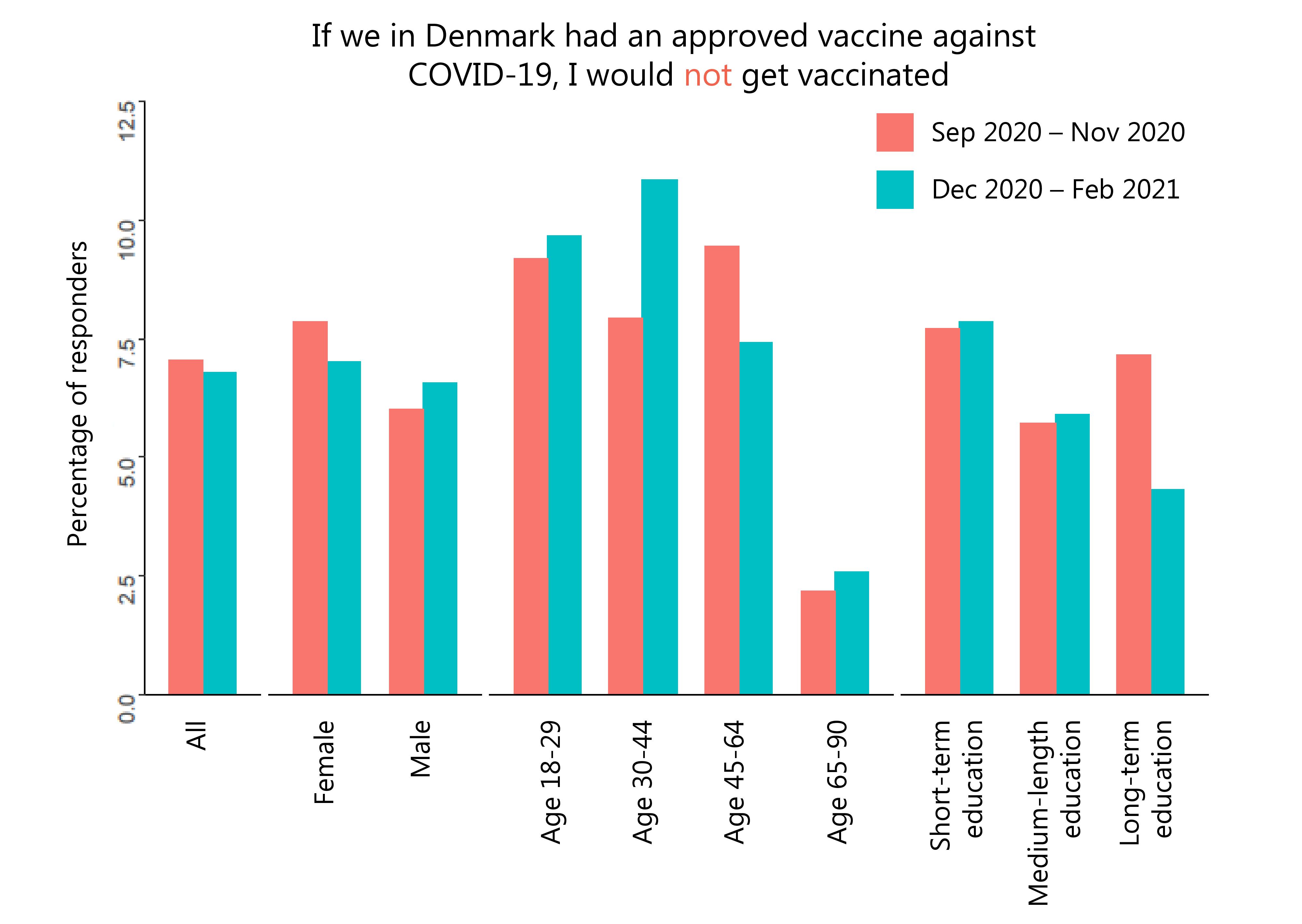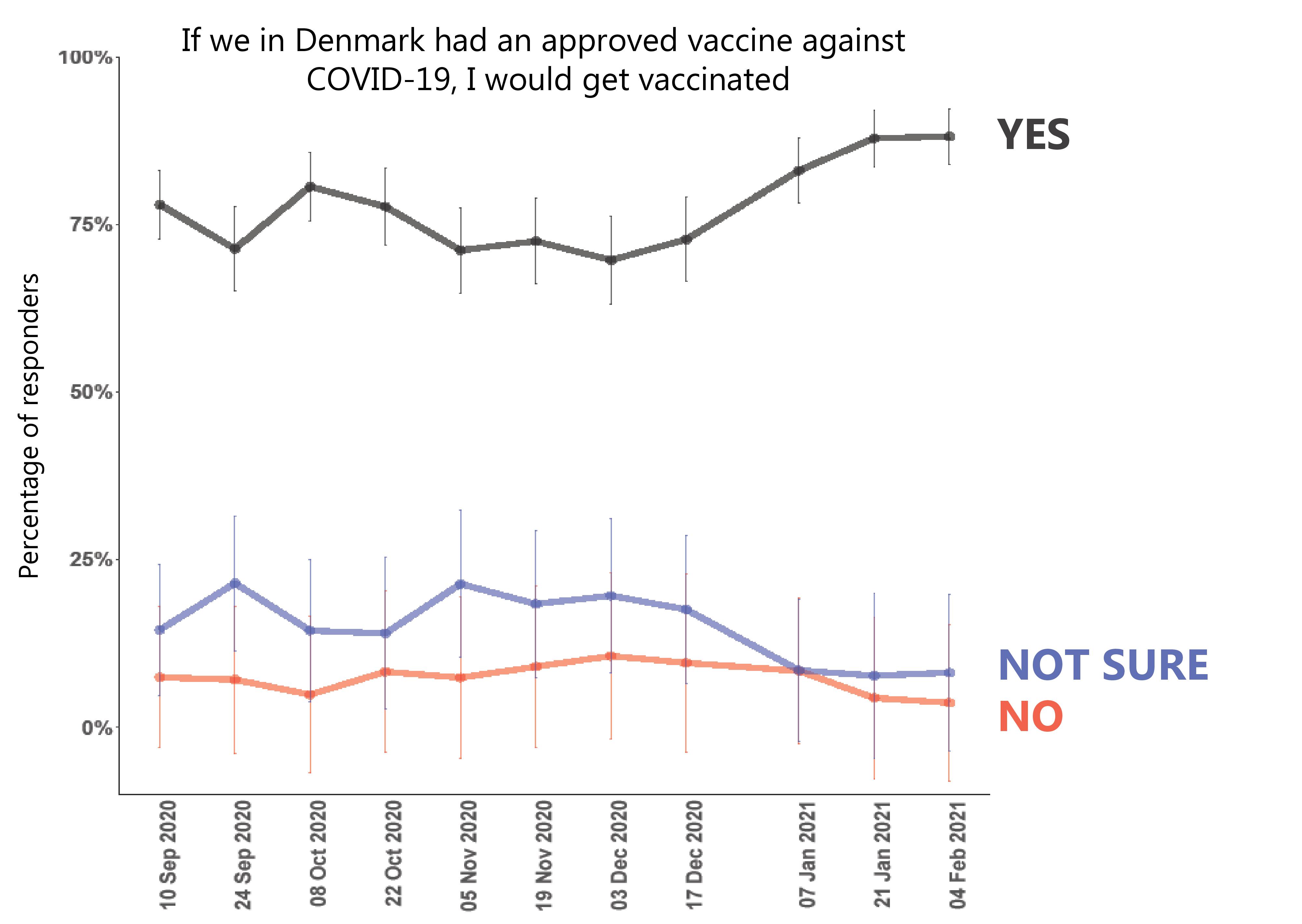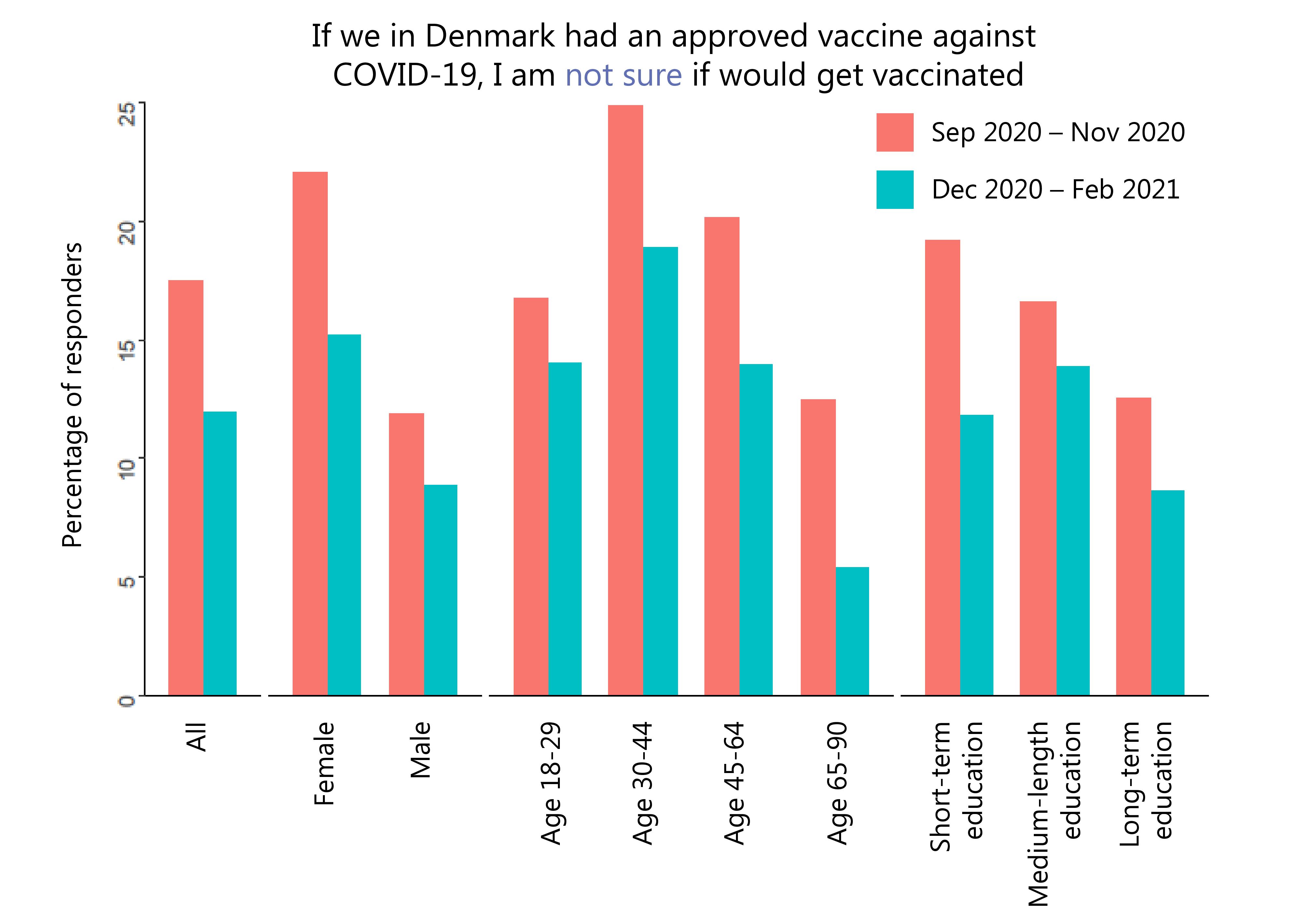Danes seem to be increasingly receptive to getting vaccinated for COVID-19
Starting in late December 2020, people across the country started to be vaccinated against COVID-19 with one of the three vaccines that have been approved in Denmark (Pfizer/BioNTech; Moderna; Astra Zeneca). According to the Danish Health Authority, the aim is to have every Danish resident vaccinated by the end of June 2021. To learn more about Danes’ attitudes towards the COVID-19 vaccine, we have been asking 250 different people from the general population (age 18 and above) to fill out a questionnaire every two weeks since 10 September. As of 8 February 2021, we have now analysed questionnaire data from a total of 2,993 people.
Vaccination attitudes began to change once the vaccine was distributed
We reported our initial findings on Danish adults’ attitudes regarding a COVID-19 vaccine in early December 2020. At that time, 75% of respondents said that they would get vaccinated, 18% were unsure, and 7% indicated that they would not get vaccinated. In this period from September until early December 2020, our respondents’ attitudes about a potential vaccine had been relatively stable. However, data collected in early 2021 indicates that trends are shifting; amongst the latest respondents, 88% said they would get the vaccine, 8% were unsure, and only 4% indicated that they would not get vaccinated. This suggests that, once the vaccines had been officially approved and started to be distributed, people’s attitudes also began to shift, and a higher percentage of the general population now appears to be receptive towards becoming vaccinated.
Fewer people are unsure about the vaccine
We compared our previous analysis of vaccination attitudes (N=1,680) to data collected between December 2020 and February 2021 (N=1,313). These results indicate that the percentage of the population who answered that they would not get vaccinated has remained relatively stable over time.
Click to enlarge
 However, the percentage of those who were not sure whether they would get vaccinated appears to have decreased consistently in all groups investigated (3–7% decrease across all groups).
However, the percentage of those who were not sure whether they would get vaccinated appears to have decreased consistently in all groups investigated (3–7% decrease across all groups).
Some respondents still concerned about the vaccine
Since our data collection on vaccine attitudes started in September 2020, 7% of the various respondents have answered that they do not want to be vaccinated. In their responses to the questionnaire’s pre-defined options, the primary reasons given were that they are concerned about possible side effects, they do not consider themselves to be in a risk group for infection, and they are generally opposed to vaccines.


